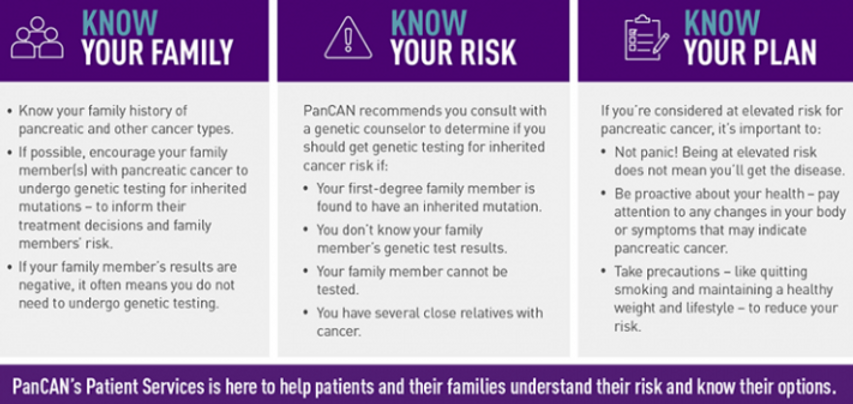Parc AssociationCancer Research
Genetic Factors and Pancreatic Cancer: Understanding Your Risk

Is Pancreatic Cancer Hereditary?
Knowledge is power in the fight against pancreatic cancer.
-
Know your family.
-
Know your risk.
-
Know your plan.
How Do You Know if Pancreatic Cancer in Your Family Is Hereditary?
If you are a first-degree relative of someone diagnosed with pancreatic cancer, you may have an increased risk of developing pancreatic cancer. Your family member with pancreatic cancer is strongly recommended to undergo genetic testing for inherited mutations.
-
Negative results often mean you do not need to get genetic testing.
-
If the results are positive, unknown or if you have several close family members with cancer, the Pancreatic Cancer Action Network recommends you consult with a genetic counselor to determine if you should get genetic testing for inherited cancer risk and if you should discuss options for monitoring.
The risk increases if more family members are affected with pancreatic cancer or other specific cancers or conditions, including:
-
Familial breast, ovarian or colon cancer
-
Familial melanoma
-
Hereditary pancreatitis: repeating pancreatic inflammation, generally starting by age 20
-
Inherited genetic syndromes associated with pancreatic cancer